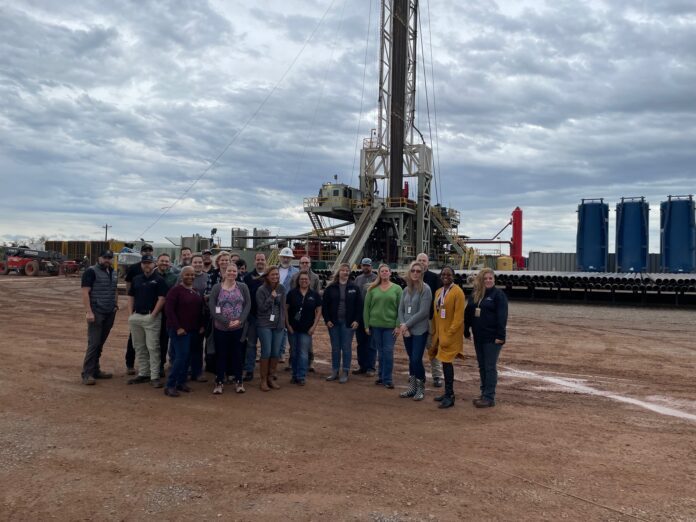
The Oklahoma Corporation Commission (OCC) is a state executive agency with a focus on Oklahoma’s fuel, oil and gas, public utilities, and transportation industries. Three statewide-elected officials, called commissioners, run the OCC. These officials serve staggered six-year terms, and they have judicial, legislative and administrative authority, ruling on and issuing orders regarding regulatory matters within the OCC’s jurisdiction.
“The OCC touches the lives of every Oklahoman, every single day,” says Trey Davis, public information officer for the OCC. “Whenever you flip a light switch, fill up your car, or purchase goods or services, the OCC has played a role in the regulation of the industries that make up the fabric of the nation’s free market system.”
The OCC regulates more than 70% of business and industry in the state, including its largest sector – gas and oil production. The agency enforces regulations that affect and oversee the safe operation of 359 public utilities, 8,431 motor carriers, 2,300 oil and gas operations, and 4,200 motor fuel facilities.
“OCC employees are fellow Oklahomans with a vested interest in improving the lives of every resident in our state,” says Davis. “We do that collectively by reliably ensuring we keep the lights on, the natural gas flowing, and the safe transportation of produce, textiles and other goods to market, so all Oklahomans can enjoy the fruits of their labors. Our employees have servants’ hearts, and realize the impact they have on the lives of their neighbors and the public at large. We are empowered to balance the rights and needs of state residents with those of regulated entities through development and enforcement of regulations in an open, transparent, ethical and just manner.”
The commissioners choose a director of administration who runs the agency’s day-to-day operations. The director also serves as the agency’s Appointing Authority (OCCAA), and is responsible for the OCC’s core divisions, annual $68 million budget, over 500 employees, regulated companies, and Oklahoma’s over four million consumers.
“The OCCAA oversees all agency divisions, finance, human resources and legal services,” Davis says. “This organizational design involves issues regarding agency regulation of public utilities, transportation, oil and gas, and other industries regulated by OCC in cases that come before the OCC. Considerable work is conducted by these various divisions resulting in hearings before agency Administrative Law Judges, and eventually by the full commission which in turn issues court orders on a host of issues involving mineral owners, property owners, oil and gas operators, consumers of electricity and natural gas, interstate and intrastate trucking, pipelines, above ground and underground storage tanks, providers of broadband and internet to public schools, libraries, telemedicine, and more.”

Curbing Quakes
The OCC developed its Induced Seismicity Department to work with the Oklahoma Geological Survey, the oil and gas industry, and stakeholders, to reduce the number of felt earthquakes from more recent industry innovations that increase mineral production in the state.
The OCC’s Brownfield Program received national recognition for its work with other public entities to remediate land once contaminated by historic oil and gas operations. The agency’s environmental unit works to protect the state’s natural resources from industry-related activity.






















